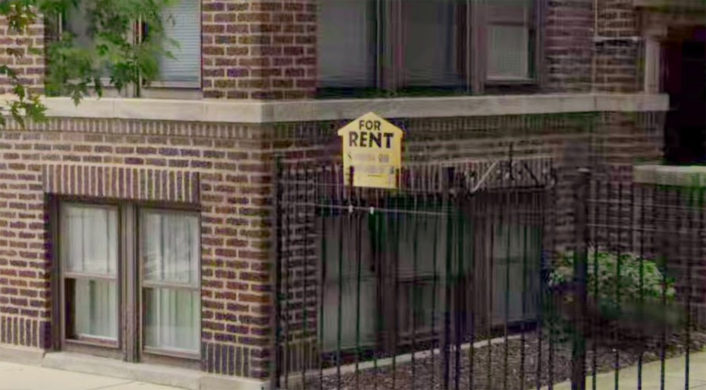Will Cook County Rental Property Owners Be Ready for the JHA Rule Changes Coming in January, 2020?
Before 2016, rental housing applicants with criminal convictions could be rejected by rental property owners, under certain circumstances. For decades, the Federal Fair Housing Act was interpreted to mean that rental property owners could not deny housing based solely on an applicant having been arrested, and that a landlord may not employ a broad policy of denying housing only based on a criminal conviction history.
In April 2016 the U.S. Department of Housing and Urban Development under the Obama administration published new guidelines defining a landlord’s responsibility to treat applicants with a criminal conviction fairly. The 2016 HUD guidance was, in part, issued to ensure that an applicant’s criminal history could not be used as a proxy to deny rental housing based on an individual’s race, ethnicity or other Fair Housing protected class.
HUD defined a set of three criteria or steps by which a landlord’s rejection of an application based on an applicant’s criminal history would be measured.
1. Does the landlord’s rental policy with respect to an applicant’s criminal record have a discriminatory effect.
Using local or national data, the rejected applicant must demonstrate that the landlord’s specific rental policy on criminal records effectively discriminates against a protected class.
While this might seem a fairly high hurdle, the HUD memo includes national criminal conviction data which HUD intimates can be used by a rejected applicant to demonstrate bias. By highlighting the discrepancy of criminal conviction rates among the Black and Hispanic communities, HUD intended to prohibit the broad-brush use of criminal convictions to deny housing.
2. Is the rental policy, with respect to criminal history, necessary to achieve a legitimate and nondiscriminatory interest.
This second criteria ostensibly shifts the burden of proof to the rental property owner. The landlord must demonstrate that their rental policy is necessary for a “substantial, legitimate” purpose that does not have a discriminatory impact based on race, ethnicity or other protected class. To be considered legitimate under the 2016 HUD guidance, the “substantial, legitimate” purpose must effectively focus on resident safety and protecting property.
3. Is there a less discriminatory alternative to the landlord’s current rental policy.
The third criteria effectively shifts the burden of proof back to the applicant. If the property owner has proven in Step 2 that their rental policy has a legitimate purpose and is not discriminatory, then the applicant must show that the legitimate interests of the landlord, “could be served by another practice that has a less discriminatory effect.”
Once again, the 2016 HUD memo offered a road map for the rejected applicant by suggesting that a rental policy that does not take into account the circumstances surrounding the criminal conduct, the age of the rejected renter at the time of the criminal conduct, the efforts at rehabilitation, and the rental history of the applicant, would likely be considered discriminatory.
And it is the last sentence in HUD’s description of Step 3 that forms the basis for Cook County’s passage of the Just Housing Amendment (“JHA”) that is set to go in effect on January 1, 2020.
This critical sentence reads:
“By delaying consideration of criminal history until after an individual’s financial and other qualifications are verified, a housing provider may be able to minimize any additional costs that such individualized assessment might add to the applicant screening process.”
A Two Step Rental Application Process Is Now the Law in Cook County
In 2019 the Cook County commissioners determined that an amendment to the Just Housing Ordinance was required to provide more protections to the criminally convicted who were applying for rental housing. The result was the passage of the Part 700 Just Housing Interpretive Rules on November 20, 2019.
When the JHA goes into effect on January 1, 2020, landlords will need to immediately implement a new, two-step approach to all rental applications. In Step 1, before accepting an application fee, the landlord must disclose to the applicant:
- The criteria used to determine fitness to enter into a rental agreement, and;
- That the landlord is not permitted to inquire about an applicant’s criminal record until after pre-qualification.
Once a housing provider determines that an applicant is pre-qualified as a renter, then and only then may the rental property owner inquire about the applicant’s criminal record.
Of importance is the fact that the ordinance does not allow the landlord to consider criminal convictions older than three (3) years and within those three years only for certain crimes. Based on the three-year cut off, here’s a hypothetical scenario that a landlord could face.
Imagine that a landlord pre-qualifies an applicant and then performs a criminal background check. The landlord discovers that the pre-qualified applicant has multiple serious criminal convictions in their past, the most current of which is five years old. This applicant has been incarcerated for years and released just thirteen months ago. Based on the new Just Housing Amendment, the landlord is not allowed to use the applicant’s history of multiple criminal behavior to reject the applicant – if they were pre-qualified.
There is an exception to the three-year rule for convicted sex offenders or those with a child sex offender residency restriction. There are no current exemptions for convictions of arson, murder, attempted murder, or other serious crimes.
Dispute Procedures When a Criminal Background Check is Used to Deny an Application
Should a Cook County rental property owner decide to proceed with a background check, and that background check reveals criminal convictions within the past three years, the landlord must then navigate a series of hurdles to deny the pre-qualified applicant rental housing based on the criminal record.
The conviction dispute procedure mandated by the Just Housing Amendment, starts with the following notifications sent to the applicant.
- A copy of the tenant selection criteria used by the rental property owner, and;
- All screening material relied upon by the landlord in both the pre-qualification and criminal history phases, and;
- The individualized assessment performed by the landlord used to reach the conclusion that the applicant’s criminal history creates a “demonstrable risk”, and;
- A copy of Part 700 of the Commission’s procedural rules or a link to the same on the Commissions website.
Once the rental property owner sends a denial of the applicant and all required written notifications to the applicant, the applicant then has five (5) business days to dispute the accuracy or relevance of the landlord’s findings.
The applicant disputing the landlord’s determination then has an additional five (5) business days to produce evidence to refute the accuracy or relevance of any criminal convictions the applicant has had in the past three years.
Assuming the rejected applicant has responded during the second five-day period, the landlord then must either approve or deny the application within three (3) days. This denial “must be in writing and must provide an explanation of why denial based on criminal conviction is necessary to protect against a demonstrable risk of harm to personal safety and/or property.”
In addition, the rental property owner’s written denial must inform the applicant of their right to file a complaint with the Commission against the landlord.
Implications for Rental Property Owners
As with any substantive new law, it’s likely that the actual impact on rental property owners, rental property applicants and the public in general will not be known for months or perhaps years. That being said, it’s clear that landlords have an immediate need to adopt new tenant screening procedures that conform to the JHA going into immediate effect.
As an attorney, I can confidently state one certain outcome from the new rules. There will be litigation.
What other outcomes might result from the JHA rules are yet to be determined, but I believe several substantial, unintended consequences are on the horizon for both rental property owners and applicants of all types. I’ll write about these and the penalties landlords will face in an upcoming blog post.
In the meantime, if you are a rental property owner seeking guidance on the new rules, please feel free to reach out to me and the attorneys of Brown, Udell, Pomerantz and Delrahim, Ltd. All residential property owners and management companies must become familiar with the JHA immediately and place the proper protocols and procedures in place prior to January 1, 2020.

Glenn is licensed to practice in Illinois. He received a Juris Doctorate degree from the Western Michigan University, Cooley Law School in 1990 and a BA degree in Psychology from the University of Wisconsin in Madison in 1986.

